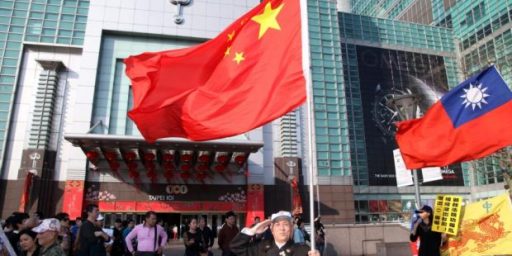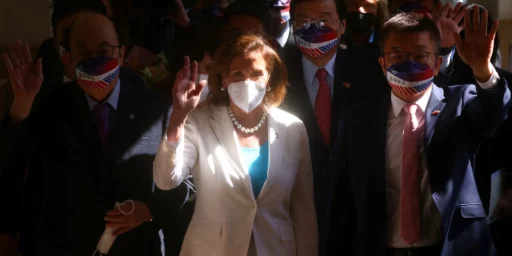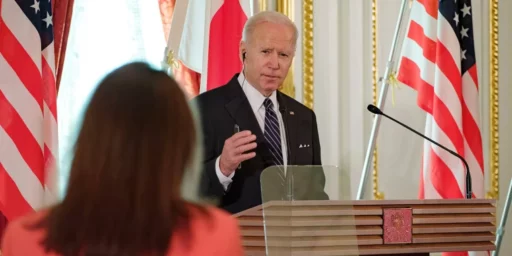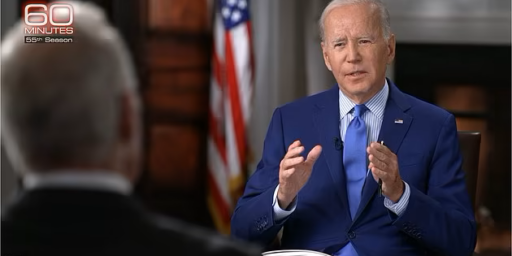China and Taiwan End Their War after 60 Years
60 Years Later, China Enemies End Their War (NYT | RSS)
The leaders of China’s Communist Party and of Taiwan’s opposition Nationalist Party, the two sides that fought China’s civil war, formally ended six decades of hostility on Friday with a nationally televised handshake and pledged to work together to undermine Taiwan’s independence movement.
During an elaborate ceremony at the Great Hall of the People, broadcast in China and Taiwan, Hu Jintao, the Chinese Communist leader, hailed a weeklong visit to the mainland from Taiwan by Lien Chan, the Nationalist leader, as a historic reconciliation. The Nationalists, who fled to the island in 1949 after losing the civil war, ruled Taiwan until 2000 and still control its legislature.
The meeting is the first between the leaders of the two parties in 60 years; the last was in the wartime redoubt of Chongqing, when Chiang Kai-shek and Mao Zedong made a final, failed bid to reach a cease-fire.
Both sides pointedly used the trip to try to isolate Taiwan’s president, Chen Shui-bian, who has twice won election on a platform leaning toward independence. He now faces an unusual alliance between the opposition party and China’s Communist leadership, which the Taiwan government still calls the enemy.
A stunning development if it holds. I’m rather skeptical, though. The underlying issues have not been resolved here. China is still an authoritarian state under a Communist Party, although one that has liberalized sectors of the economy. Taiwan is an Asian Tiger, far ahead of the Mainland economically and technologically. Of late, it has also been democratic.
The “One China” policy is simply a fiction, although a useful one. They are two countries, pure and simple. I can’t see how a handshake and the agreement of the minority party changes that.






Indeed, I predict an electoral wipeout for the KMT in the near future that would even look shocking if compared to the immolation of Canada’s Progressive Conservatives in the early 1990s.
I agree with Chris. This is an attempt by a party whose star is setting, to portray itself as newly able to make peace with Beijing in hopes of reviving its electoral fortunes.
I’d be really surprised if it worked.
I’ll just put myself down as an optimist. Taiwan President Chen Shui Bian has little room to move right now with this warming of relations. This could mean a new move to open up direct trade and relations that Chen has so far refused to make. If it brings about stability in the status quo and an improvement in the Taiwan economy, the KMT will be credited with helping bring that about. If Chen remains an obstructionist and derails improved trade, then he’ll be blamed for the resulting bad economic trends. Taiwan democracy is still mostly about local politics and economics. Most of the people want the status quo and not rock the boat.
Jame, a correction. The KMT is the majority party in the legislative yuan, and controls most decisions on budgets and like. Like the US, the President can set policy, but must have the legislature’s approval to fund those initiatives.